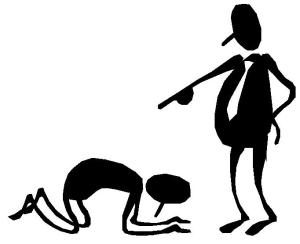Remember when you went back to your old kindergarten and were surprised that suddenly all the toys and swings were tiny when they had seemed to giant as a kid? We don’t do a great job of noticing when we change our power or status, particularly if that happens slowly.
Do you ever think about the (invisble) power dynamics are around you?
Power imbalances can create a lot of turmoil for students/colleagues, especially if they are unexpressed, or unrecognised. These structures can make life particularly difficult for people who may not feel like they have the right to speak up about them. So today’s exercise is short, but powerful.
In conversations you have today, record:
- who you are speaking to
- who approached who to start the conversation
- what the power differences are of those in the group
- how brief/long were the conversations
- were you/they in similar moods to start?
- did your/their mood change during the conversation?
- was anyone tasked with doing something?

No post on power dynamics would be complete without some clipart, amirite?
Something I particularly like to work on while doing my Improv for Impostor Syndrome workshops is to recognise status in an improv game (which is sometimes simpler than real life!) and then to change status. The subtle clues we give ourselves about our status can have a big impact on how we feel about any conversation and how productive we are in a work/office space. Can you try having similar conversations, but each time changing your “status”? How do you feel?